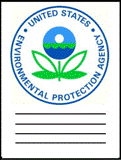United States Environmental Protection Agency

United States Environmental Protection Agency: Publications
Document Type
Article
Date of this Version
2009
Citation
Published in Water Research 43 (2009) 1867-1878. Doi:10.1016/j.watres.2009.01.032
Abstract
A 20-month pilot-scale study was conducted to examine the impact of temperature on the performance of an anaerobic biological contactor used to treat perchlorate-contaminated water. The contactor was successfully acclimated with indigenous microorganisms. Influent temperatures varied from 1.4 to 30 °C. The objectives of the study were to investigate the effects of temperature on perchlorate removal, nitrate removal, nitrite formation, dissolved oxygen consumption, sulfide production, and nutrient acetate consumption. The results confirmed that consistent biological perchlorate removal to 2 µg/L is feasible at temperatures above 10 °C. Effluent concentrations of perchlorate, nitrate, and dissolved oxygen varied inversely with temperature, while sulfide varied positively with temperature. Under the conditions that prevailed during this study, 10 °C was a threshold temperature below which microbial activity, including perchlorate reduction, decreased dramatically.

